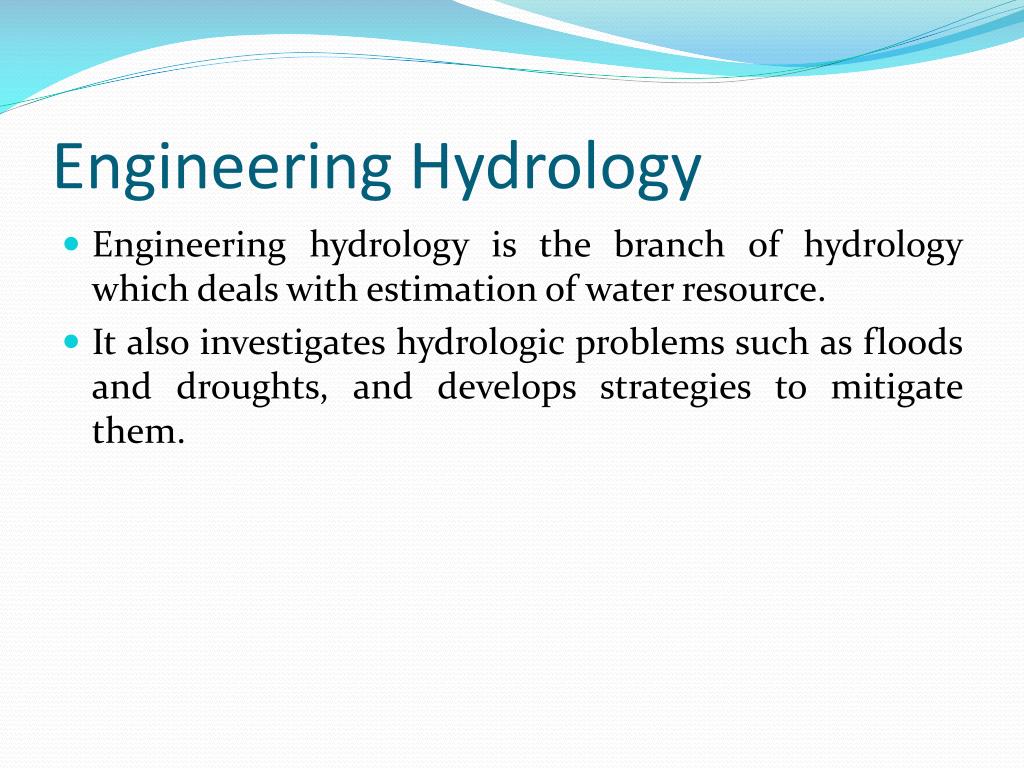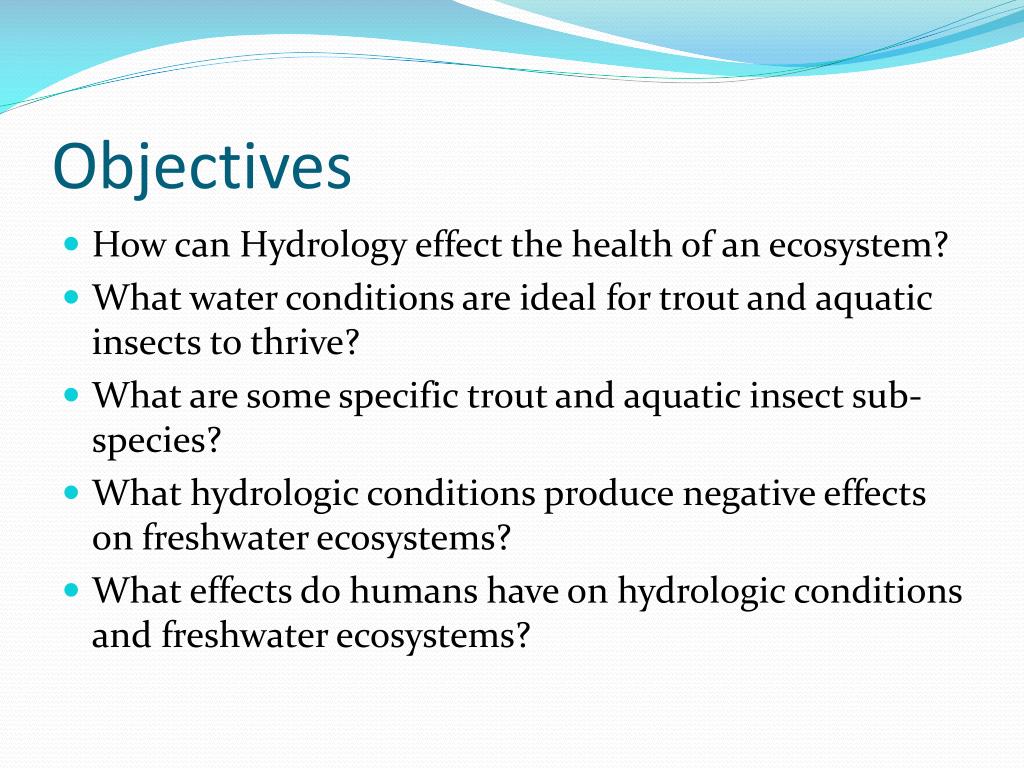The Beating Heart of Water Science: What Truly Matters in Hydrology?
Grasping the Essential Aims of Guiding Our Water Wisdom
Ever ponder what truly animates those who delve into the world of water? It’s more than just an appreciation for a good downpour or a majestic river, though those certainly hold a certain charm. At its core, hydrology, the scientific exploration of water’s journey, its distribution across our planet (and even others!), and its inherent qualities, operates with a set of vital objectives that fuel its detailed studies and practical applications. Think of it as the careful investigation into all things water, constantly striving to comprehend and thoughtfully manage this indispensable resource.
A fundamental aim of hydrology is the meticulous evaluation and measurement of our water resources. This encompasses everything from recording rainfall amounts and snowmelt contributions to analyzing the levels of underground water and the flow rates of rivers. Why such thorough scrutiny? Well, dependable information forms the very foundation upon which sensible water management decisions are constructed. Without a clear picture of how much water exists, its geographical location, and its patterns of behavior over time, we’d be navigating the intricate landscape of water supply and demand without a map. It’s akin to attempting a complex recipe without knowing the quantity of your ingredients — the outcome is likely to be less than ideal!
Furthermore, hydrology assumes a crucial role in both understanding and forecasting water-related dangers. Consider sudden floods, prolonged dry spells, and even the gradual yet significant consequences of rising sea levels. By employing advanced models and analytical methods, hydrologists endeavor to predict these occurrences, offering essential advance notice for communities and infrastructure to prepare. It’s about providing a heads-up before nature unleashes its watery (or water-absent) forces. This predictive capability is becoming increasingly vital in a world grappling with the evolving impacts of climate change, elevating the importance of hydrological work.
Beyond mere quantity, hydrology holds a deep concern for the quality of our water. It investigates the various processes that can influence the chemical, physical, and biological characteristics of water bodies. This includes studying the origins of pollution, the natural purification mechanisms within aquatic environments, and the impact of human actions on water quality. Ensuring access to clean and safe water stands as a primary goal, and hydrologists are at the forefront of this critical endeavor, acting as guardians of this precious resource for both human use and the health of ecosystems.
Venturing Deeper: Predicting Water’s Actions and Steering Its Course
Forecasting Flows and Lessening Risks Through Hydrological Models
The capacity to anticipate how water will behave under varying conditions represents another essential aspect of hydrological objectives. This involves the creation and refinement of intricate mathematical models that simulate the diverse elements of the water cycle. These models can project river flows, estimate the extent of flooding, and even assess how changes in land use affect water resources. It’s like possessing a sophisticated tool for peering into the future of water, grounded in solid scientific principles and extensive data. These forecasts are invaluable for a range of applications, from managing the operation of reservoirs to designing infrastructure resilient to extreme weather.
Effective stewardship of water resources is intrinsically linked to the insights provided by hydrology. By comprehending the complexities of water availability, movement, and quality, well-informed decisions can be made regarding allocation, conservation, and the formulation of sustainable water management strategies. This involves balancing the competing needs of various users, such as agriculture, industry, and households, while also safeguarding the long-term well-being of aquatic ecosystems. It’s a delicate balancing act, and hydrology supplies the crucial information needed to navigate these intricate choices.
Hydrologists also play a significant role in evaluating the consequences of human activities on the water environment. This includes examining the effects of urbanization, deforestation, and farming practices on both the amount and the quality of water. By quantifying these impacts, hydrologists can offer valuable insights to policymakers and land managers, helping to steer development in a more environmentally responsible direction. It’s about understanding our impact on the watery world and discovering ways to interact with this essential resource more sustainably. After all, we are all connected by water, one way or another.
Furthermore, the field of hydrology is in constant evolution, incorporating new technologies and methodologies to enhance our understanding of the water cycle. This includes the utilization of remote sensing technologies, such as satellite imagery, to monitor water resources across vast areas, as well as the application of advanced computing techniques to analyze large datasets. This continuous innovation ensures that hydrology remains at the cutting edge of water science, providing increasingly sophisticated tools for tackling the water challenges of the 21st century. It’s a dynamic discipline, always seeking new ways to unravel the mysteries of water.
Connecting with Humanity: Water for Society and a Sustainable Future
Securing Water Availability and Protecting Natural Water Systems
A central objective of hydrology is to contribute to water security for human populations. This encompasses ensuring access to sufficient quantities of clean water for drinking, sanitation, agriculture, and industrial purposes. Hydrological studies provide the groundwork for designing and managing water supply systems, from the construction of reservoirs to the development of strategies for extracting groundwater. It’s about ensuring that everyone has access to this fundamental human necessity, a challenge that grows increasingly complex with population growth and shifting climate patterns.
However, the focus of hydrology extends beyond just human needs. Recognizing the inherent value of aquatic ecosystems, hydrologists also strive to understand and protect these vital environments. This involves studying the water requirements of different species and habitats, assessing the impact of changes in water flow on ecological health, and developing strategies for maintaining and restoring natural flow patterns. It’s about acknowledging our place within a larger web of life and understanding that the health of our water resources is inextricably linked to the overall health of the planet.
The principles of sustainability are deeply woven into the objectives of modern hydrology. This means managing water resources in a manner that satisfies present needs without jeopardizing the ability of future generations to meet their own needs. Hydrologists are actively involved in developing and promoting sustainable water management practices, such as water conservation measures, efficient irrigation techniques, and the reuse and recycling of water. It’s about adopting a long-term perspective and ensuring the continued availability of this precious resource for generations to come. We wouldn’t want to be the generation that depletes this essential lifeblood.
Education and public awareness also constitute an important, though often implicitly stated, objective of hydrology. By communicating the significance of water resources, the challenges they face, and the role that individuals and communities can play in their sustainable management, hydrologists contribute to a more water-conscious society. This involves sharing research findings, engaging with policymakers, and promoting understanding of water issues among the general public. It’s about fostering a collective sense of responsibility for this vital resource, because ultimately, we all share a connection to the water that sustains us.
The Power of Collaboration: Working Together for Comprehensive Solutions
Integrating Hydrology with Fellow Sciences and Engineering Fields
Hydrology is not a solitary pursuit; it flourishes through collaboration. A key objective is the effective integration with other scientific disciplines, such as meteorology, geology, ecology, and environmental science. Understanding the intricate interactions between the atmosphere, the Earth’s surface, and living organisms is crucial for a comprehensive understanding of the water cycle and its management. This interdisciplinary approach allows for the development of more holistic and effective solutions to water-related challenges. Think of it as a team of experts, each with unique knowledge contributing to a shared goal.
Furthermore, hydrology shares a strong bond with various engineering fields, particularly civil and environmental engineering. Hydrologists work closely with engineers in the design and construction of water infrastructure, such as dams, reservoirs, canals, and wastewater treatment plants. Their expertise in water flow, storage, and quality is essential for ensuring the safety, efficiency, and sustainability of these critical systems. It’s a partnership built on the fundamental understanding that scientific knowledge must be translated into practical solutions that benefit society.
The increasing accessibility of advanced technologies, such as remote sensing, geographic information systems (GIS), and high-performance computing, has significantly enhanced the capabilities of hydrologists. A key objective is to effectively utilize these tools to improve data collection, analysis, and modeling. This technological integration allows for a more detailed and dynamic understanding of water systems, leading to more accurate predictions and more effective management strategies. It’s about embracing the power of innovation to address the constantly evolving challenges within the water sector.
Finally, hydrology plays a crucial role in informing policy and decision-making related to water resources. By providing scientific evidence and objective analysis, hydrologists contribute to the development of sound water policies and regulations at local, regional, and global levels. This involves working with governments, international organizations, and other stakeholders to ensure that water resources are managed in a sustainable and equitable manner. It’s about translating scientific understanding into actionable strategies that protect this vital resource for all.
Common Queries Answered: Exploring the Goals of Hydrology
Your Lingering Water-Related Questions Addressed!
So, you’ve journeyed through the intricate world of hydrological objectives. But perhaps a few drops of curiosity still remain? Don’t worry, we’ve anticipated some of your likely questions!
Q: Why dedicate so much effort to studying something as basic as water? Doesn’t it simply, well, move?
A: That’s a natural question! While it’s true that water does indeed move (thank goodness for gravity!), the *how*, *why*, and *in what quantity* are incredibly complex and carry significant weight for our lives and the environment. Understanding these intricacies allows us to forecast floods, manage periods of drought, ensure the availability of clean drinking water, and protect delicate ecosystems. It’s similar to saying we understand air because we breathe it — there’s an entire science (meteorology and atmospheric science) dedicated to its complexities!
Q: How does the work of hydrology actually touch my everyday life? I’m not exactly out there measuring rainfall.
A: You might not be handling scientific instruments, but hydrology’s influence is all around you! It’s the reason you have clean water flowing from your tap, the basis for the irrigation that helps grow your food, and the science that underpins the prediction and mitigation of flood risks in your community. Every time you turn on the faucet or hear a weather report mentioning potential flooding, you’re indirectly benefiting from the work of hydrologists. They are essential contributors to our water-dependent lives!
Q: With the increasing unpredictability caused by climate change, can hydrology still provide dependable insights?
A: That’s an excellent and very relevant point! Climate change certainly introduces new challenges, making historical data less reliable for future predictions. However, hydrology is adapting and evolving! Scientists are developing more advanced climate models and incorporating climate change scenarios into their analyses to better understand and predict future water availability and potential risks. In fact, the challenges posed by climate change make the contributions of hydrologists even *more* vital in helping us adapt to a changing world. It’s like upgrading our water-prediction abilities to navigate a more complex watery future!

Ppt Hydrology Basic Concepts Powerpoint Presentation, Free Download
5hydrology.ppt Surface Runoff Hydrology


